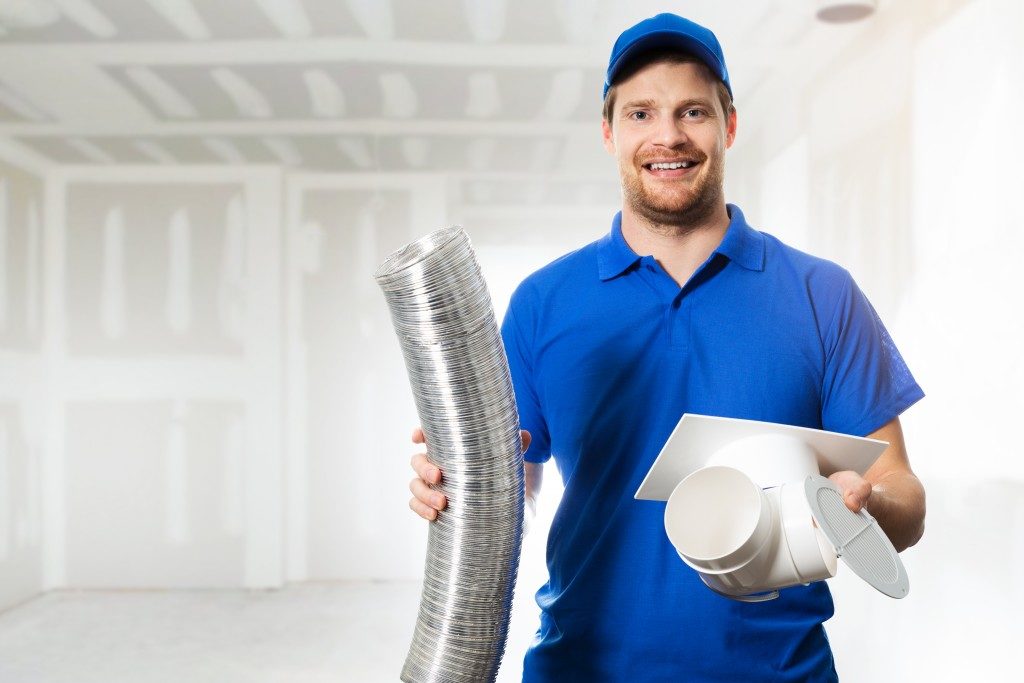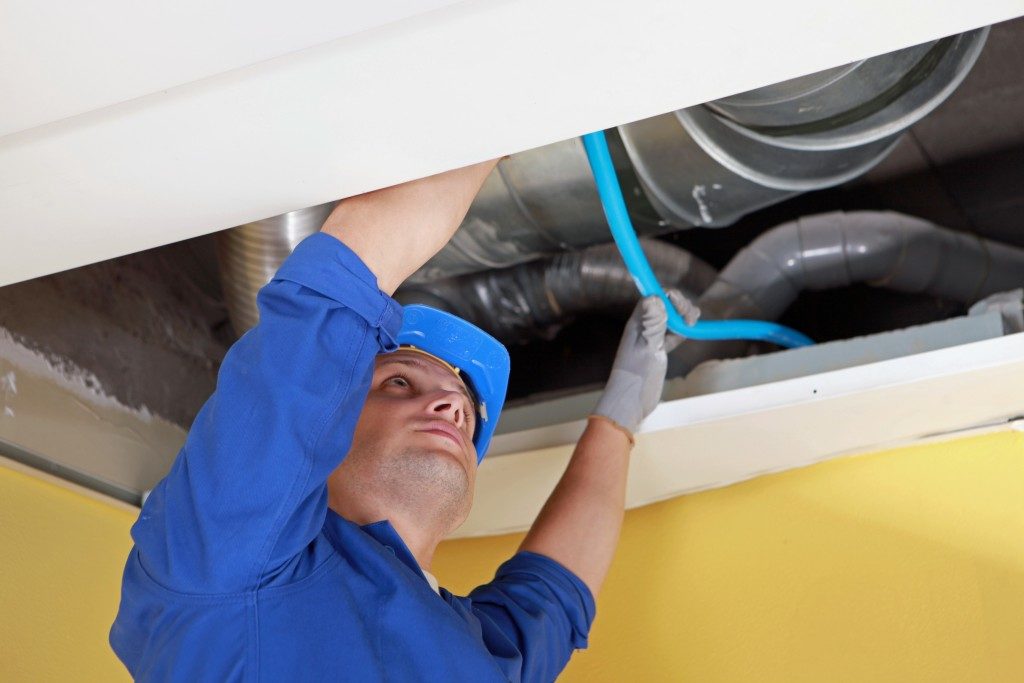Most people do not think they need companies offering air duct cleaning services since they assume this is a task they can comfortably handle. The term ‘air duct cleaning’ is, however, in reality, a misnomer. This is because professional duct cleaners do not just clean your air ducts but all the interior components of your HVAC unit. These include the registers, drain pans, grills, heat exchanger, air filters, cleaners and grills among others.
Rotary Brush and Vacuum
This technique is generally used to clean ductwork in commercial settings where there is dry dust. The ductwork system is first detached into workable segments then an access door fitted on either end. Blocking foam is then inserted through the access doors and a powerful vacuum unit connected on one end with a rotary brush on the opposite end. The rotary brush is switched on to agitate dust particles on all sections of your unit which are then sucked out through the vacuum.
Steam Cleaning
In this method, the cleaners use a wand which delivers steam under high pressure and temperature into your HVAC’s interiors. The steam agitates the debris on the walls of your air ducts and other components. This debris is then drawn out by a vacuum cleaner. Steam cleaning is however not routinely used on modern HVAC units since most of their parts are electrical and thus might be destroyed by moisture.
Truck-Mounted Vacuum Cleaning
This method is generally used for large HVAC systems. Its mechanism of action is similar to that used in the rotary brush and vacuum cleaning though the brushes used are large. The vacuum is mounted onto a truck and draws about 10000-15000 cubic feet of debris per minute. Though very efficient, utmost care is essential when employing truck-mounted vacuum cleaning. This is because there is a high risk of cross-contamination of your ducts with vehicle exhaust and the debris drawn from different sections.
Point-Of-Contact Cleaning

This is currently the most effective and safest method for cleaning HVAC units. The technique uses a moveable HEPA vacuum cleaner with an attached agitation device. The machine then simultaneously agitates and collects the debris in your unit, which then minimises the risk of cross-contamination. Point-of-contact cleaning also relies on the drawn air’s velocity, and a high speed allows a more powerful lift of the debris. There might be other cleaning techniques used with the above to guarantee a thorough cleaning in some rooms. The kitchen ductwork, for instance, is sticky from all the grease used in cleaning. As such, the cleaners might use dry ice freezing to dislodge the grease and efficiently clean the ducts here.

